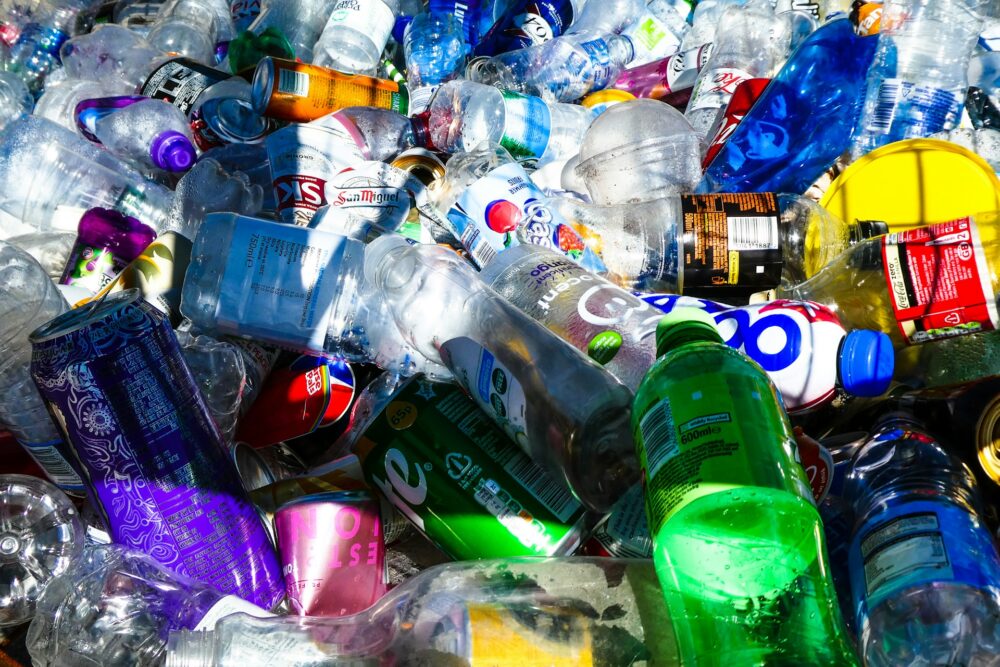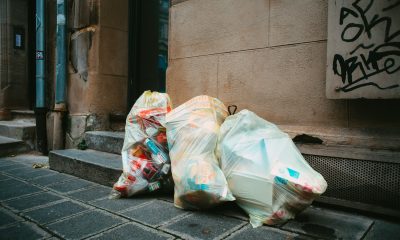Impact Investing
Only 3% of Italian Companies Are Already Compliant with the UN Plastic Treaty
The EU introduced a tax on non-reusable plastic packaging, with some countries, like Italy, postponing implementation. The UN aims to finalize a binding Plastic Treaty by 2024 to curb plastic pollution, as only 10% is recycled globally. While Italian companies acknowledge packaging regulations, few are compliant, and technology is essential for tracking recyclability data.

Although Italian organizations understand their environmental impact in terms of packaging and waste and are informed about the regulations in this regard, such as the European tax and international tariffs, only 3% of Italian companies believe they are already compliant with the objectives of the regulation that the United Nations is working on, the UN Plastic Treaty.
That is what emerges from a recent research conducted by SAP, active in business applications and business AI, in Italy, Spain and Portugal, to discover the level of awareness of companies and the impact of new regulations on packaging, processes and business activities. The study involved approximately 750 business leaders with functional responsibilities in the packaging, branding, design and sustainability sectors.
The UN Plastic Treaty: Current regulations and the risks of inertia
Since January 1st, 2021, the European Union has introduced a Tax on non-reusable plastic packaging , a measure that has been postponed in some countries, including Italy. In addition to European regulation, the United Nations is working on the UN Plastic Treaty, with the aim of ending plastic pollution, on which an agreement is expected by the end of this year.
The goal of teh UN Plastic Treaty is to reach a legally binding international agreement to address plastic pollution throughout the life cycle of the material. Current estimates predict that, if effective measures are not taken, the production of new plastic will double worldwide by 2040.
And despite social and business awareness and the various measures taken, today only 10% of plastic is recycled. In addition, greenhouse gas emissions from the production, management and disposal of plastics represent approximately 3.3% of global emissions.
High knowledge of regulations, but little preparation for change
83 % of Italian organizations say they are informed about regulations regarding packaging, such as taxes, tariffs and future regulations, and 66% say they understand the impact on their organization of European regulations on packaging and related waste.
However, despite their claimed knowledge of the regulations, only 3% of Italian companies believe they are already compliant with the objectives of the UN Plastic Treaty. 72% say they need to implement moderate or minimal changes to become compliant, and 25% say the changes will be significant, compared to 19% of Portuguese companies and 18% of Spanish companies.
Data is one of the elements that most helps to understand the waste recycling process. And the study shows that, although most Italian companies intend to increase their use of recycled materials and their capacity to recycle packaging, very few track data to prepare compliance reports. In fact, only 45% of Italian companies record data on recycled content. In Spain and Portugal, this percentage stands at 49%.
The top two areas of intervention to respond to European regulations on Packaging and Packaging Waste (UN Plastic Treaty) are the use of recycled materials for packaging, with 77% of respondents, and the modification of the packaging design to be more easily recycled, with 75%.
__
(Featured image by Nick Fewings via Unsplash)
DISCLAIMER: This article was written by a third party contributor and does not reflect the opinion of Born2Invest, its management, staff or its associates. Please review our disclaimer for more information.
This article may include forward-looking statements. These forward-looking statements generally are identified by the words “believe,” “project,” “estimate,” “become,” “plan,” “will,” and similar expressions. These forward-looking statements involve known and unknown risks as well as uncertainties, including those discussed in the following cautionary statements and elsewhere in this article and on this site. Although the Company may believe that its expectations are based on reasonable assumptions, the actual results that the Company may achieve may differ materially from any forward-looking statements, which reflect the opinions of the management of the Company only as of the date hereof. Additionally, please make sure to read these important disclosures.
First published in ESG NEWS. A third-party contributor translated and adapted the article from the original. In case of discrepancy, the original will prevail.
Although we made reasonable efforts to provide accurate translations, some parts may be incorrect. Born2Invest assumes no responsibility for errors, omissions or ambiguities in the translations provided on this website. Any person or entity relying on translated content does so at their own risk. Born2Invest is not responsible for losses caused by such reliance on the accuracy or reliability of translated information. If you wish to report an error or inaccuracy in the translation, we encourage you to contact us

-

 Impact Investing2 weeks ago
Impact Investing2 weeks agoEU Backs 90% Emissions Cut by 2040 and Delays ETS2 Rollout
-

 Crypto2 days ago
Crypto2 days agoTariff Turmoil Sends Bitcoin and Ethereum Lower as Crypto Markets Face Mounting Pressure
-

 Markets1 week ago
Markets1 week agoMarkets, Jobs, and Precious Metals Show Volatility Amid Uncertainty
-

 Cannabis6 days ago
Cannabis6 days agoAI Can Mimic Psychedelic Experiences but Cannot Truly Feel Them, Study Warns

























